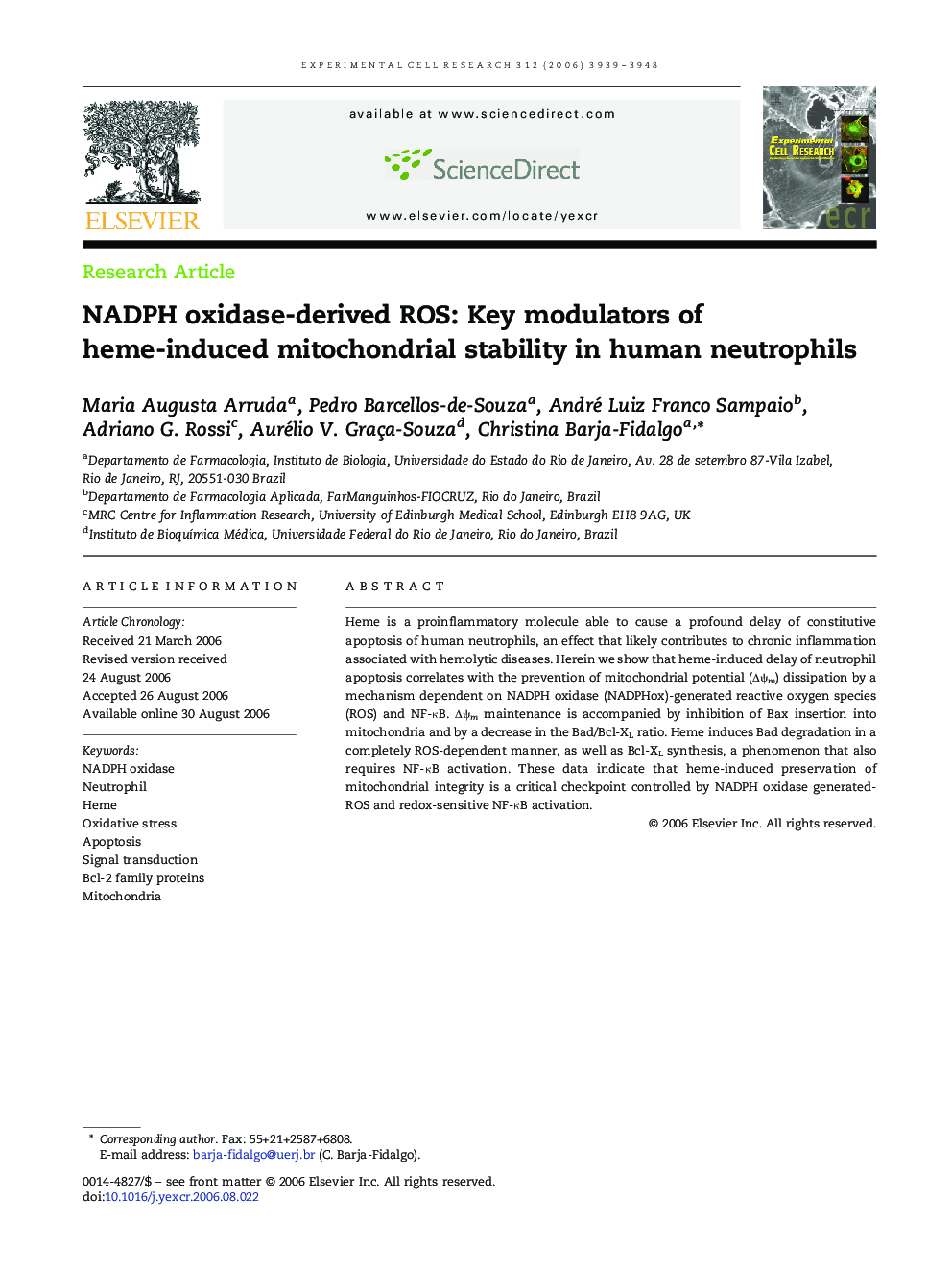| Article ID | Journal | Published Year | Pages | File Type |
|---|---|---|---|---|
| 2132783 | Experimental Cell Research | 2006 | 10 Pages |
Heme is a proinflammatory molecule able to cause a profound delay of constitutive apoptosis of human neutrophils, an effect that likely contributes to chronic inflammation associated with hemolytic diseases. Herein we show that heme-induced delay of neutrophil apoptosis correlates with the prevention of mitochondrial potential (Δψm) dissipation by a mechanism dependent on NADPH oxidase (NADPHox)-generated reactive oxygen species (ROS) and NF-κB. Δψm maintenance is accompanied by inhibition of Bax insertion into mitochondria and by a decrease in the Bad/Bcl-XL ratio. Heme induces Bad degradation in a completely ROS-dependent manner, as well as Bcl-XL synthesis, a phenomenon that also requires NF-κB activation. These data indicate that heme-induced preservation of mitochondrial integrity is a critical checkpoint controlled by NADPH oxidase generated-ROS and redox-sensitive NF-κB activation.
